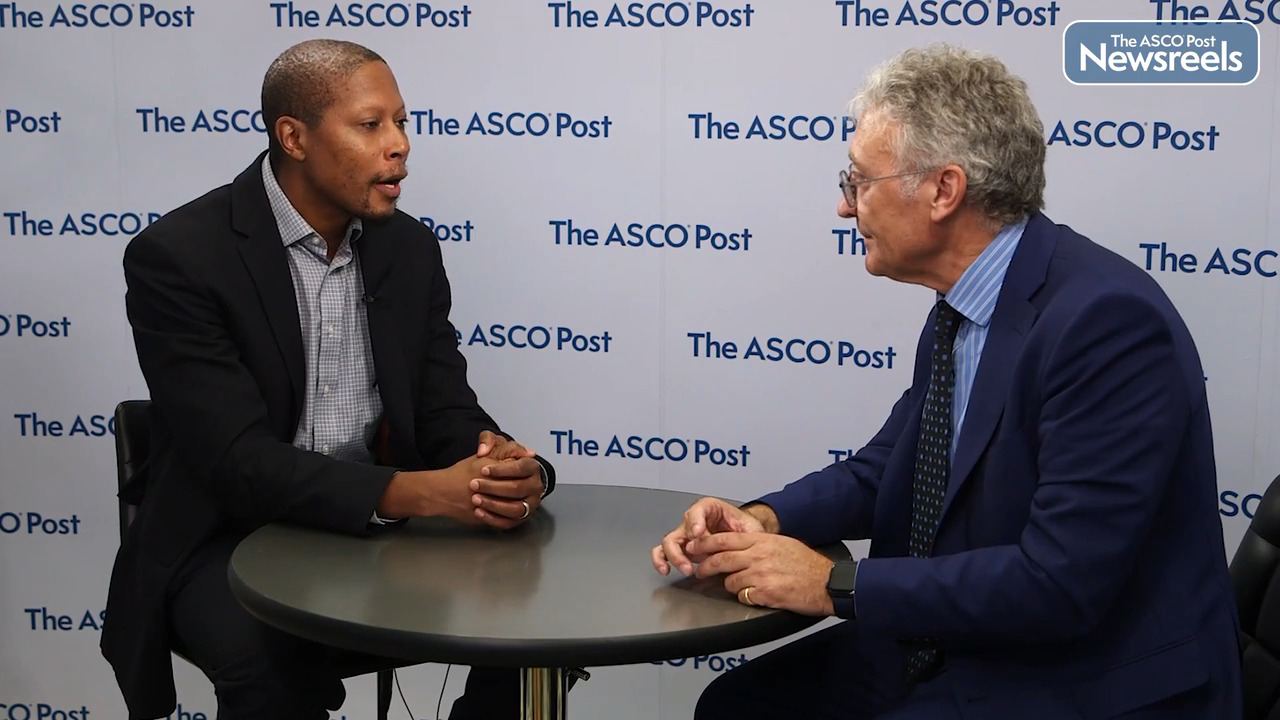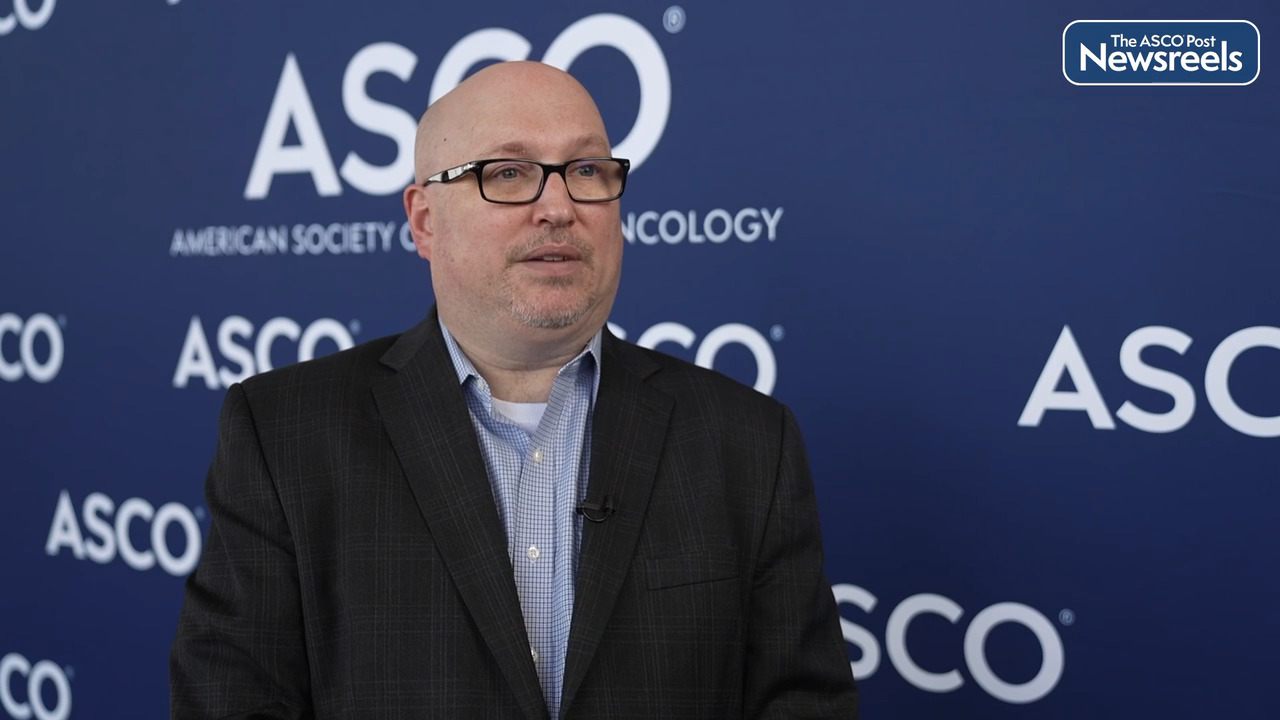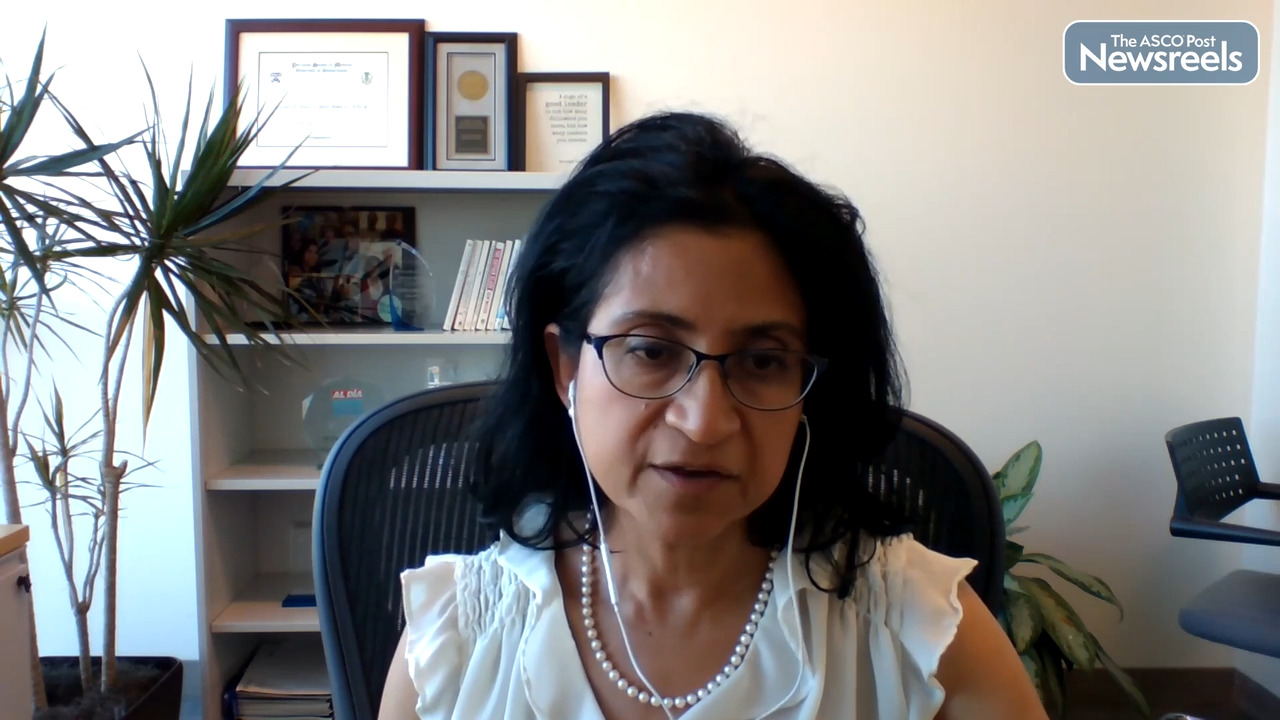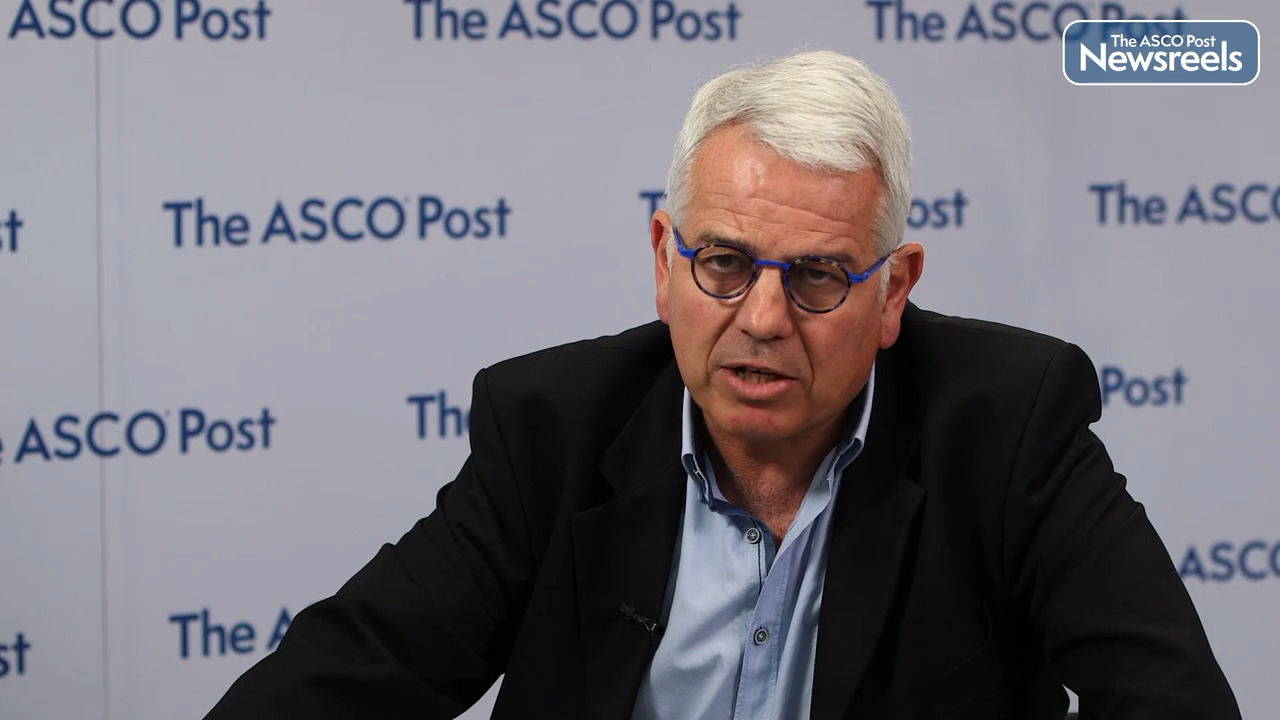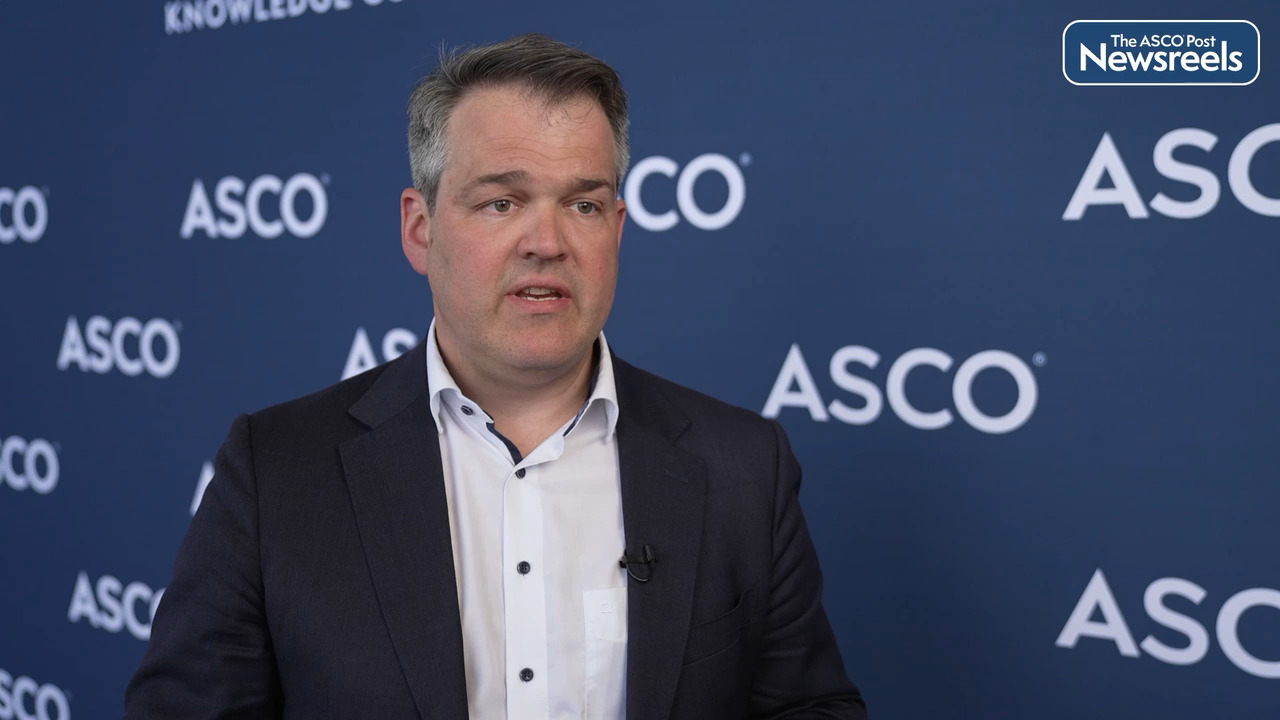Ajay K. Nooka, MBBS, on High-Risk Myeloma: Data on Carfilzomib, Pomalidomide, and Dexamethasone
2023 ASCO Annual Meeting
Ajay K. Nooka, MBBS, of Winship Cancer Center of Emory University, discusses phase II findings showing that, in patients with high-risk myeloma, maintenance therapy with carfilzomib, pomalidomide, and dexamethasone deepened responses. Measurable residual disease negativity was attained in 80% of patients.
The ASCO Post Staff
Tycel J. Phillips, MD, of City of Hope National Medical Center, and Emanuele Zucca, MD, of the Oncology Institute of Southern Switzerland and the International Extranodal Lymphoma Study Group, discuss findings from the largest prospective study of patients with primary mediastinal B-cell lymphoma. The trial data support omitting radiotherapy in patients who achieve complete metabolic response after immunochemotherapy (Abstract LBA7505).
The ASCO Post Staff
Thomas E. Hutson, DO, PharmD, of Texas Oncology, discusses the 4-year follow-up results from the CLEAR study for patients with advanced renal cell carcinoma (RCC). The data showed that lenvatinib plus pembrolizumab continues to demonstrate clinically meaningful benefit vs sunitinib in overall and progression-free survival, as well as in overall and complete response rates, in first-line treatment (Abstract 4502).
The ASCO Post Staff
Carmen E. Guerra, MD, MSCE, of the University of Pennsylvania Abramson Cancer Center, discusses three key abstracts presented at ASCO: strategies to increase accrual of underrepresented populations in Alliance NCTN trials, how patient-clinician education can strengthen partnerships and improve diversity in breast and lung cancer trials, and mediators of racial and ethnic inequities in clinical trial participation among U.S. patients with cancer from 2011 to 2022 (Abstracts 6509, 6510, 6511).
The ASCO Post Staff
Christian Pfister, MD, PhD, of Rouen University Hospital, discusses phase III results from the VESPER trial, which showed that dose-dense methotrexate, vinblastine, doxorubicin, and cisplatin provided a better overall survival rate at 5 years and improved disease-specific survival compared with gemcitabine as perioperative chemotherapy in patients with muscle-invasive bladder cancer (Abstract LBA4507).
The ASCO Post Staff
Sebastian Stintzing, MD, of the Charité Universitätsmedizin Berlin, discusses results from the phase III FIRE-4 study, which showed that liquid biopsy is clinically relevant in verifying mutational status in patients with metastatic colorectal cancer and is efficacious in first-line treatment of FOLFIRI and cetuximab for patients with RAS wild-type disease (Abstract 3507).
